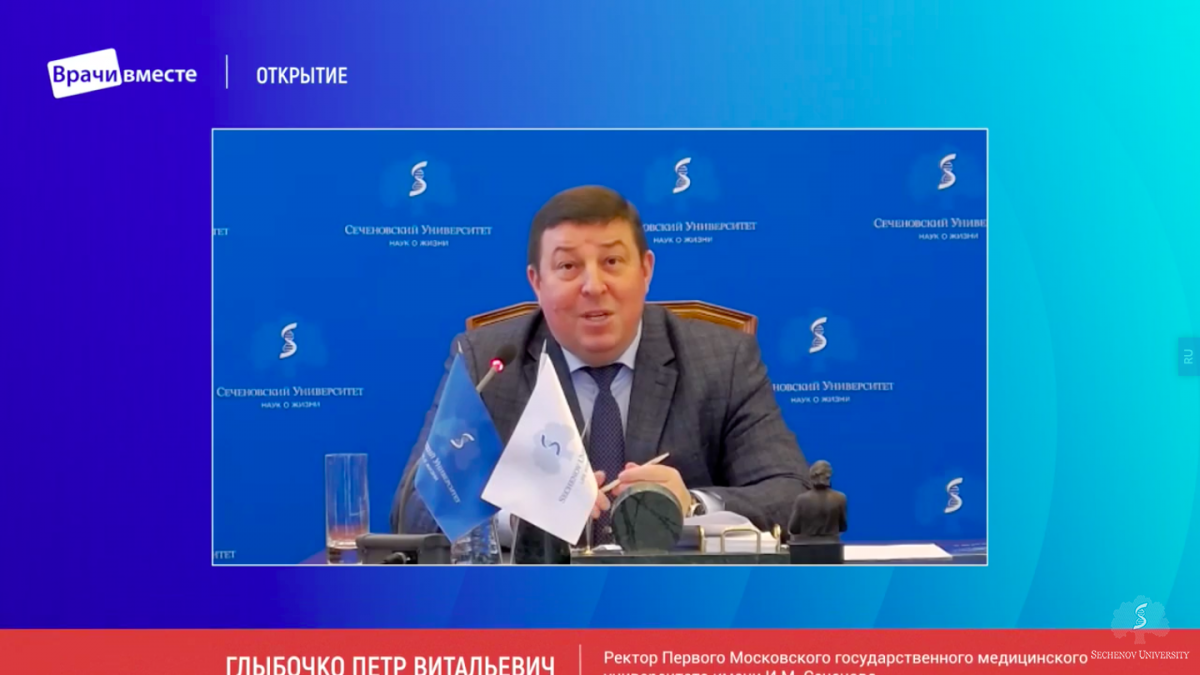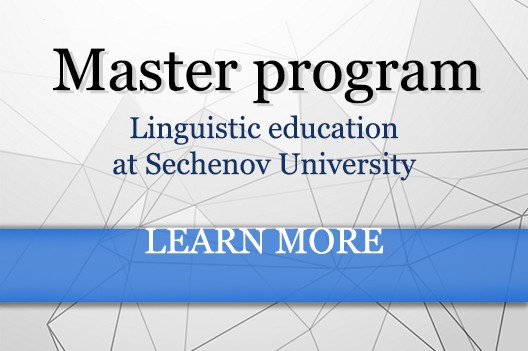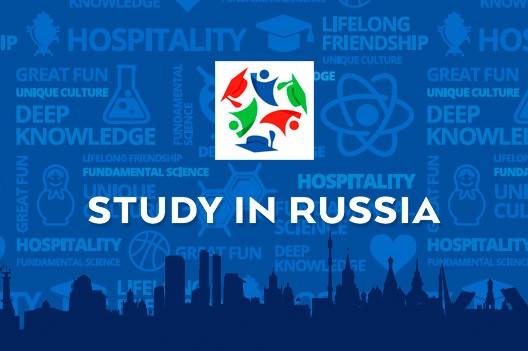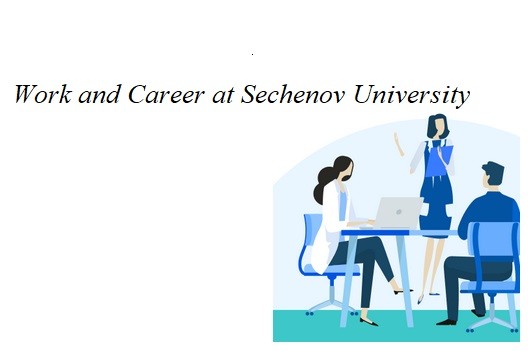-
About University
- Mission & Brand Strategy
- University Leadership
- Rector's Welcome
- History
- Regulatory Documents
- Contacts
- Staff
- International Recruitment
- Partners
Applicants- Why Sechenov University
- Degree Programmes in English
- Preparatory Training
- Non-Degree Programmes
- Transfer from other Institutions
- FAQs
08.12.2021World-Class Research Centres: meeting at Sechenov

One of the recent initiatives of the Russian Government was the creation of World-Class Research Centres (WCRCs). These centres — based in the currently existing leading research organisations — should attract young scientists and maintain leadership in basic research.
On 30 November and 1 December, Sechenov University hosted the online summit where representatives of the medical-oriented WCRCs discussed a broad range of issues, including breakthrough interdisciplinary research, international collaborations, personnel training for the medicine of the future, participation in the Strategic Initiative of the Russian Government Medical Science for People, and potential integration of WCRCs.
The four WCRCs — which work in the field of healthcare and have attended the summit — include Digital Biodesign and Personalised Healthcare (led by Sechenov University), Personalised Medicine Centre, National Centre of Personalised Medicine of Endocrine Diseases, and Pavlov Centre Integrative Physiology to Medicine, High-Tech Healthcare, and Technologies of Stress Resistance.
In his welcome address, Dmitry Chernyshenko, Deputy Prime Minister of Russia, said that ‘the mission of the summit is to determine the routes leading to a single education system for the medicine of the future in the digital economy’.
The WCRCs are supervised by two Deputy Prime Ministers, Dmitry Chernyshenko and Tatyana Golikova.
The summit featured a line-up of distinguished speakers, including Tatyana Semenova, Deputy Minister of Health; Alexey Medvedev, Deputy Minister of Science and Higher Education; Alexander Khlunov, Director General of the Russian Science Foundation; Victor Sadovnichy, Rector of Lomonosov Moscow State University; Vladimir Starodubov, Scientific Director of the Federal Research Institute for Health Organisation and Informatics of the Ministry of Health of the Russian Federation; Julie Chan, President of the International Union of Physiological Sciences; Jeroen Bax, Director of Non-Invasive Imaging and Director of the Echo Laboratory in the Department of Cardiology at the Leiden University Medical Centre (Netherlands); Paula Williamson, Professor of Medical Statistics at the University of Liverpool (UK).
The range of themes discussed by the attendees covered personnel training, oncology research, genetics, rare diseases, endocrinology, metabolic disorders, digital ecosystems, artificial intelligence in medicine, infectious diseases, COVID-19 pandemic, cardiology, neurology, neurodegeneration, and physiology.
The four healthcare-oriented WCRCs shared their research programmes. The programme of Digital Biodesign and Personalised Healthcare, led by Sechenov University, was delivered by Rector Petr Glybochko. Personalised Medicine Centre was presented by Evgeny Shlyakhto, Director General of Almazov National Medical Research Centre (St Petersburg). The plans of the National Centre of Personalised Medicine of Endocrine Diseases were discussed by Natalya Mokrysheva, Director of the Endocrinology Research Centre (Moscow). The programme of Pavlov Centre Integrative Physiology to Medicine, High-Tech Healthcare, and Technologies of Stress Resistance was presented by Lyudmila Filaretova, Director of Pavlov Institute of Physiology (St Petersburg).
Petr Glybochko, Rector of Sechenov University, described the WCRC Digital Biodesign and Personalised Healthcare as consisting of three core components — cellular biodesign, bioinformatics modelling and digital transformations, digital biobank.
‘The innovative digital platform which is being developed at our WCRC will help doctors predict the course and development of diseases, build an individual therapeutic strategy for each patient using complex simulations, and create digital twins in oncology (lung, kidney, colorectal cancer) and in cardiology (hypertension and ischaemic heart diseases)’, said Petr Glybochko. ‘By 2025, we are planning to complete the digital twins project aimed at the early diagnosis and prediction of cancer and heart diseases. It’s also in our plans to create digital twins of people’.
Education strategies for the medicine of the future are also crucial for the WCRCs.
‘Sechenov University is a multidisciplinary research university of life sciences. We do train medical doctors, but we also do train specialists in mathematical modelling, bionics, biomedical technologies, biomedical cell products, and biodesign. It’s a new generation of professionals, and our Biomedical Science and Technology Park has become the key place for their training. We are also happy that young scientists work within our WCRC’, said Petr Glybochko.
He also suggested to the leaders of the other WCRCs to team up for building a single digital platform for the WCRCs and a single education system for the medicine of the future in the digital economy — using the expertise and resources of Sechenov University.
The summit was supported by the Government of the Russian Federation, Ministry of Science and Higher Education, Ministry of Health, and Russian Academy of Sciences.
Embed on website
World-Class Research Centres: meeting at Sechenov

One of the recent initiatives of the Russian Government was the creation of World-Class Research Centres (WCRCs). These centres — based in the currently existing leading research organisations — should attract young scientists and maintain leadership in basic research.
On 30 November and 1 December, Sechenov University hosted the online summit where representatives of the medical-oriented WCRCs discussed a broad range of issues, including breakthrough interdisciplinary research, international collaborations, personnel training for the medicine of the future, participation in the Strategic Initiative of the Russian Government Medical Science for People, and potential integration of WCRCs.
The four WCRCs — which work in the field of healthcare and have attended the summit — include Digital Biodesign and Personalised Healthcare (led by Sechenov University), Personalised Medicine Centre, National Centre of Personalised Medicine of Endocrine Diseases, and Pavlov Centre Integrative Physiology to Medicine, High-Tech Healthcare, and Technologies of Stress Resistance.
In his welcome address, Dmitry Chernyshenko, Deputy Prime Minister of Russia, said that ‘the mission of the summit is to determine the routes leading to a single education system for the medicine of the future in the digital economy’.
The WCRCs are supervised by two Deputy Prime Ministers, Dmitry Chernyshenko and Tatyana Golikova.
The summit featured a line-up of distinguished speakers, including Tatyana Semenova, Deputy Minister of Health; Alexey Medvedev, Deputy Minister of Science and Higher Education; Alexander Khlunov, Director General of the Russian Science Foundation; Victor Sadovnichy, Rector of Lomonosov Moscow State University; Vladimir Starodubov, Scientific Director of the Federal Research Institute for Health Organisation and Informatics of the Ministry of Health of the Russian Federation; Julie Chan, President of the International Union of Physiological Sciences; Jeroen Bax, Director of Non-Invasive Imaging and Director of the Echo Laboratory in the Department of Cardiology at the Leiden University Medical Centre (Netherlands); Paula Williamson, Professor of Medical Statistics at the University of Liverpool (UK).
The range of themes discussed by the attendees covered personnel training, oncology research, genetics, rare diseases, endocrinology, metabolic disorders, digital ecosystems, artificial intelligence in medicine, infectious diseases, COVID-19 pandemic, cardiology, neurology, neurodegeneration, and physiology.
The four healthcare-oriented WCRCs shared their research programmes. The programme of Digital Biodesign and Personalised Healthcare, led by Sechenov University, was delivered by Rector Petr Glybochko. Personalised Medicine Centre was presented by Evgeny Shlyakhto, Director General of Almazov National Medical Research Centre (St Petersburg). The plans of the National Centre of Personalised Medicine of Endocrine Diseases were discussed by Natalya Mokrysheva, Director of the Endocrinology Research Centre (Moscow). The programme of Pavlov Centre Integrative Physiology to Medicine, High-Tech Healthcare, and Technologies of Stress Resistance was presented by Lyudmila Filaretova, Director of Pavlov Institute of Physiology (St Petersburg).
Petr Glybochko, Rector of Sechenov University, described the WCRC Digital Biodesign and Personalised Healthcare as consisting of three core components — cellular biodesign, bioinformatics modelling and digital transformations, digital biobank.
‘The innovative digital platform which is being developed at our WCRC will help doctors predict the course and development of diseases, build an individual therapeutic strategy for each patient using complex simulations, and create digital twins in oncology (lung, kidney, colorectal cancer) and in cardiology (hypertension and ischaemic heart diseases)’, said Petr Glybochko. ‘By 2025, we are planning to complete the digital twins project aimed at the early diagnosis and prediction of cancer and heart diseases. It’s also in our plans to create digital twins of people’.
Education strategies for the medicine of the future are also crucial for the WCRCs.
‘Sechenov University is a multidisciplinary research university of life sciences. We do train medical doctors, but we also do train specialists in mathematical modelling, bionics, biomedical technologies, biomedical cell products, and biodesign. It’s a new generation of professionals, and our Biomedical Science and Technology Park has become the key place for their training. We are also happy that young scientists work within our WCRC’, said Petr Glybochko.
He also suggested to the leaders of the other WCRCs to team up for building a single digital platform for the WCRCs and a single education system for the medicine of the future in the digital economy — using the expertise and resources of Sechenov University.
The summit was supported by the Government of the Russian Federation, Ministry of Science and Higher Education, Ministry of Health, and Russian Academy of Sciences.



